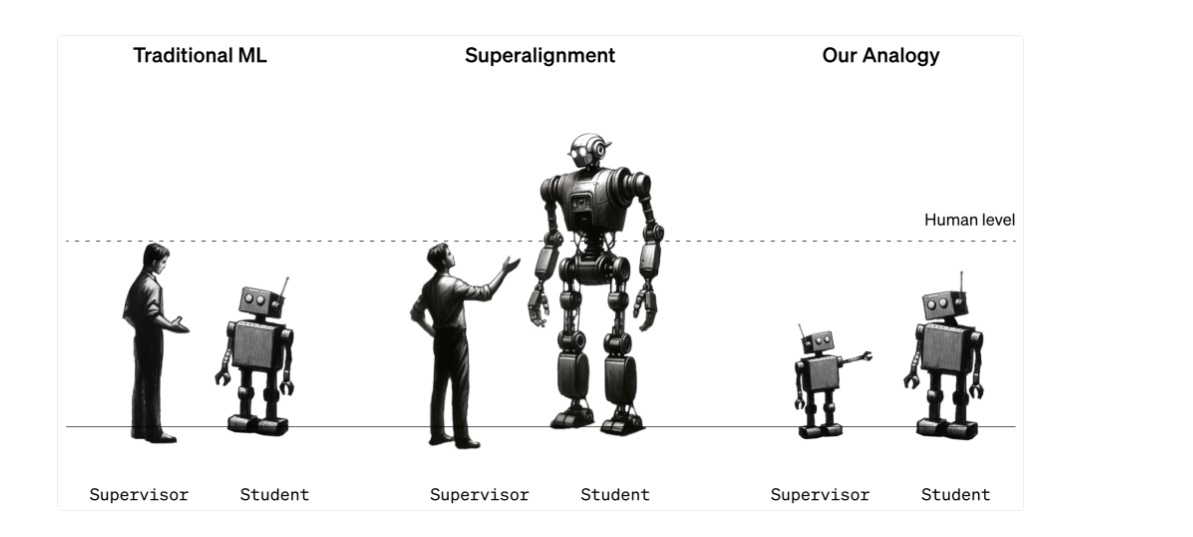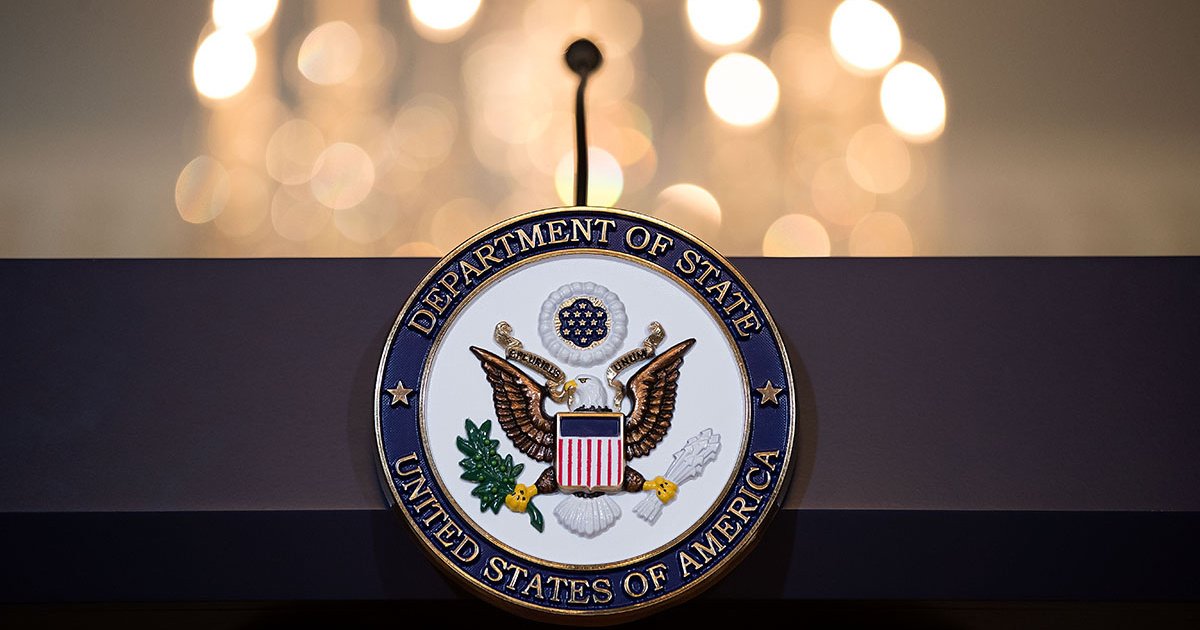In an eight-month study of roughly 200 employees at a U.S. tech firm, researchers from Harvard found that AI tools tended to intensify work rather than reduce it. By accelerating task completion, AI enabled workers to take on a broader range of responsibilities—often extending their working hours in the process. Notably, although the company provided […]
The Hidden Cost of AI America’s tech giants are locked in an unprecedented race to dominate artificial intelligence, pouring tens of billions of dollars into massive data centers across the country. But this AI gold rush comes with a sobering reality: the nation’s aging electrical grid may not be equipped to handle the surge, and […]
Recent research published in Nature reports that large language models can exhibit unintended and harmful behavior outside the domain in which they are explicitly fine-tuned, raising important concerns for AI safety, evaluation, and deployment. The study demonstrates that narrow, domain-specific interventions can induce broader behavioral misalignment across unrelated tasks. In controlled experiments, independent researchers fine-tuned […]
Demis Hassabis didn’t mince words. Responding on X, the Google DeepMind CEO summed up the situation in three blunt words: “This is embarrassing.” He was reacting to a celebratory post by Sébastien Bubeck of OpenAI, who claimed that GPT-5 had helped mathematicians solve 10 long-standing open problems. “Science acceleration via AI has officially begun,” Bubeck […]
Italian neurosurgeon Sergio Canavero has spent years pursuing one of medicine’s most controversial ideas: transplanting a human head—or brain—onto a younger, healthier body. He drew global attention in 2017 after claiming a team he advised in China had swapped heads between two cadavers. Skeptics were unconvinced, and his assertion that a live human procedure was […]
Microsoft CEO Satya Nadella is promoting a new narrative around artificial intelligence, urging stakeholders to focus on how AI tools empower humans and how resources should be allocated to support this technological expansion. He’s now exercising “thought leadership,” publishing on a new blog called “sn scratchpad” that he promoted through his company’s LinkedIn platform. Nadella […]
Europe’s banking industry faces a massive workforce reduction driven by artificial intelligence and digital transformation. Morgan Stanley research cited by the Financial Times projects that approximately 200,000 jobs at 35 major European banks could disappear by 2030, representing roughly 10% of their total workforce. Back-office functions, risk management, and compliance departments face the greatest threat, […]
🧠 Implications .
Millions Turn to ChatGPT for Beauty Advice, Spending Thousands Based on AI Recommendations Millions are now asking ChatGPT to judge their appearance—and spending hundreds of thousands of dollars based on its recommendations. Across social media, users are uploading selfies to ChatGPT and other AI tools, asking them to rate their attractiveness and design personalized “glow-up” […]
MIT Technology Review by John Lee — In March 2016, the world witnessed a unique moment in the evolution of artificial intelligence (AI) when AlphaGo, an AI developed by DeepMind, played against Lee Sedol, one of the greatest Go players of the modern era. The match reached a critical juncture in Game 2 with Move 37, […]
By Steve Hanley from CleanTechnica —- Worried that alterations to the Earth’s climate may wipe out all the bees, leading to a steep decline in the availability of fruits and vegetables? Fear not. Researchers at MIT say they have successfully created robot bees that can do the job of real bees just as well and maybe better in some cases. […]
The United States just introduced new unprecedented export controls on AI chips, creating a tiered global system that aims to maintain U.S. technological leadership while restricting access for China and other strategic competitors. The details: The new framework divides the world into tiers, with unrestricted access for 20 close allies and strict limits for others.The controls target […]
By Malek el Khazen – edited text by OpenAI The pursuit of Artificial General Intelligence (AGI) demands a paradigm shift in how AI systems are trained and deployed. Simply adding more hardware to handle increasing computational demands has reached a point of diminishing returns. The next breakthrough will come from a unified platform that integrates […]
Abu Dhabi Launches International Carbon Measurement, Reporting and Verification Programme The Environment Agency – Abu Dhabi (EAD) has launched an international standard carbon Measurement, Reporting, and Verification (MRV) programme to address carbon emissions and accelerate the emirate’s transition to a low-carbon economy. This move supports Abu Dhabi’s broader decarbonisation goals, including reducing carbon emissions by […]
Emirati investment firm Kazar is investing $2.5 billion to build a hybrid renewable energy station in Egypt’s Zafarana region. The project, a collaboration with the Egyptian government, will deliver a total capacity of 3.1 gigawatts—2 GW from solar energy and 1.1 GW from wind energy—making it a key addition to Egypt’s renewable energy infrastructure. The station will operate […]
Malek El Khazen Data, AI & IoT Cloud Solution Architect at Microsoft By Malek el Khazen – edited text by OpenAI In the AI world, the obsession with “bigger” has driven an arms race for larger models, faster chips, and sprawling data center setups. But bigger doesn’t mean better. The future will reward precision, efficiency, […]

by venturebeat — In a development straight out of science fiction, Endiatx, a pioneering medical technology company, is making significant strides in bringing its robotic pill to market. The company’s CEO, Torrey Smith, recently sat down with VentureBeat to share exciting updates on their progress, nearly two years after our initial coverage of the startup’s ambitious vision. Founded in 2019, Endiatx has been steadily working towards realizing the fantastic voyage of miniaturized robots navigating the human body for diagnostic and therapeutic purposes. Their flagship product, the PillBot, is an ingestible robotic capsule equipped with cameras, sensors, and wireless communication capabilities, allowing doctors to examine the gastrointestinal tract with unprecedented precision and control.
In the interview, Smith revealed that Endiatx has raised $7 million in funding to date, with the largest investment of $1.5 million coming from Singapore-based Verge Health Tech Fund. This injection of capital has propelled the company forward, enabling them to refine their technology and conduct clinical trials. Join enterprise leaders in San Francisco from July 9 to 11 for our flagship AI event. Connect with peers, explore the opportunities and challenges of Generative AI, and learn how to integrate AI applications into your industry. Register Now “We’re currently in clinical trials with our pill bot technology,” Smith explained. “We’ll be starting pivotal trials at a leading U.S. medical institution in Q3/Q4.” Though Smith did not name the institution due to confidentiality agreements, he hinted that it is a renowned facility known for its expertise in gastroenterology. The PillBot has come a long way since its inception. The current prototype measures just 13mm by 30mm and boasts impressive capabilities. “It can transmit high-res video at 2.3 megapixels per second, and we have plans to quadruple that video quality soon,” Smith enthused. The CEO himself has played a vital role in testing, having swallowed 43 PillBots to date, including live on stage in front of a stunned audience.

by Michael Nuñez @MichaelFNunez – venturebeat –– As companies race to adopt artificial intelligence systems, conventional wisdom suggests that younger, more tech-savvy employees will take the lead in teaching their managers how to effectively use the powerful new tools. But a new study casts doubt on that assumption when it comes to the rapidly-evolving technology of generative AI.
The research, conducted by academics from Harvard Business School, MIT, Wharton, and other institutions in collaboration with Boston Consulting Group, found that junior employees who experimented with a generative AI system made recommendations for mitigating risks that ran counter to expert advice. The findings suggest that companies cannot rely solely on reverse mentoring to ensure the responsible use of AI. “Our interviews revealed two findings that run counter to the existing literature,” wrote the authors. “First, the tactics that the juniors recommended to mitigate their seniors’ concerns ran counter to those recommended by experts in GenAI technology at the time, and so revealed that the junior professionals might not be the best source of expertise in the effective use of this emerging technology for more senior members.”
Junior consultants struggle with AI risk mitigation in GPT-4 experiment The researchers interviewed 78 junior consultants in mid-2023 who had recently participated in an experiment giving them access to GPT-4, a powerful generative AI system, for a business problem-solving task. The consultants, who lacked technical AI expertise, shared tactics they would recommend to alleviate managers’ concerns about risks. But the study found the junior employees’ risk mitigation tactics were often grounded in “a lack of deep understanding of the emerging technology’s capabilities,” focused on changing human behavior rather than AI system design, and centered on project-level interventions rather than organization or industry-wide solutions.
Navigating the challenges of generative AI adoption in business

by technologyreview.com — Generative AI provides a new, powerful tool kit that allows malicious actors to work far more efficiently and internationally than ever before, says Vincenzo Ciancaglini, a senior threat researcher at the security company Trend Micro. Most criminals are “not living in some dark lair and plotting things,” says Ciancaglini. “Most of them are regular folks that carry on regular activities that require productivity as well.” Last year saw the rise and fall of WormGPT, an AI language model built on top of an open-source model and trained on malware-related data, which was created to assist hackers and had no ethical rules or restrictions. But last summer, its creators announced they were shutting the model down after it started attracting media attention. Since then, cybercriminals have mostly stopped developing their own AI models. Instead, they are opting for tricks with existing tools that work reliably. That’s because criminals want an easy life and quick gains, Ciancaglini explains. For any new technology to be worth the unknown risks associated with adopting it—for example, a higher risk of getting caught—it has to be better and bring higher rewards than what they’re currently using.
Here are five ways criminals are using AI now.
Phishing
The biggest use case for generative AI among criminals right now is phishing, which involves trying to trick people into revealing sensitive information that can be used for malicious purposes, says Mislav Balunović, an AI security researcher at ETH Zurich. Researchers have found that the rise of ChatGPT has been accompanied by a huge spike in the number of phishing emails. Spam-generating services, such as GoMail Pro, have ChatGPT integrated into them, which allows criminal users to translate or improve the messages sent to victims, says Ciancaglini. OpenAI’s policies restrict people from using their products for illegal activities, but that is difficult to police in practice, because many innocent-sounding prompts could be used for malicious purposes too, says Ciancaglini. OpenAI says it uses a mix of human reviewers and automated systems to identify and enforce against misuse of its models, and issues warnings, temporary suspensions and bans if users violate the company’s policies. “We take the safety of our products seriously and are continually improving our safety measures based on how people use our products,” a spokesperson for OpenAI told us. “We are constantly working to make our models safer and more robust against abuse and jailbreaks, while also maintaining the models’ usefulness and task performance,” they added.

by apple.com — CUPERTINO, CALIFORNIA Apple today announced new accessibility features coming later this year, including Eye Tracking, a way for users with physical disabilities to control iPad or iPhone with their eyes. Additionally, Music Haptics will offer a new way for users who are deaf or hard of hearing to experience music using the Taptic Engine in iPhone; Vocal Shortcuts will allow users to perform tasks by making a custom sound; Vehicle Motion Cues can help reduce motion sickness when using iPhone or iPad in a moving vehicle; and more accessibility features will come to visionOS.
These features combine the power of Apple hardware and software, harnessing Apple silicon, artificial intelligence, and machine learning to further Apple’s decades-long commitment to designing products for everyone. “We believe deeply in the transformative power of innovation to enrich lives,” said Tim Cook, Apple’s CEO. “That’s why for nearly 40 years, Apple has championed inclusive design by embedding accessibility at the core of our hardware and software. We’re continuously pushing the boundaries of technology, and these new features reflect our long-standing commitment to delivering the best possible experience to all of our users.” “Each year, we break new ground when it comes to accessibility,” said Sarah Herrlinger, Apple’s senior director of Global Accessibility Policy and Initiatives. “These new features will make an impact in the lives of a wide range of users, providing new ways to communicate, control their devices, and move through the world.”
Eye Tracking Comes to iPad and iPhone
Powered by artificial intelligence, Eye Tracking gives users a built-in option for navigating iPad and iPhone with just their eyes. Designed for users with physical disabilities, Eye Tracking uses the front-facing camera to set up and calibrate in seconds, and with on-device machine learning, all data used to set up and control this feature is kept securely on device, and isn’t shared with Apple. Eye Tracking works across iPadOS and iOS apps, and doesn’t require additional hardware or accessories. With Eye Tracking, users can navigate through the elements of an app and use Dwell Control to activate each element, accessing additional functions such as physical buttons, swipes, and other gestures solely with their eyes.

by Gary Grossman/DALL-E — venturebeat — AI is increasingly being used to represent, or misrepresent, the opinions of historical and current figures. A recent example is when President Biden’s voice was cloned and used in a robocall to New Hampshire voters. Taking this a step further, given the advancing capabilities of AI, what could soon be possible is the symbolic “candidacy” of a persona created by AI. That may seem outlandish, but the technology to create such an AI political actor already exists. There are many examples that point to this possibility. Technologies that enable interactive and immersive learning experiences bring historical figures and concepts to life. When harnessed responsibly, these can not only demystify the past but inspire a more informed and engaged citizenry.
People today can interact with chatbots reflecting the viewpoints of figures ranging from Marcus Aurelius to Martin Luther King, Jr., using the “Hello History” app, or George Washington and Albert Einstein through “Text with History.” These apps claim to help people better understand historical events or “just have fun chatting with your favorite historical characters.” Similarly, a Vincent van Gogh exhibit at Musée d’Orsay in Paris includes a digital version of the artist and offers viewers the opportunity to interact with his persona. Visitors can ask questions and the Vincent chatbot answers based on a training dataset of more than 800 of his letters. Forbes discusses other examples, including an interactive experience at a World War II museum that lets visitors converse with AI versions of military veterans.
The concerning rise of deepfakes Of course, this technology may also be used to clone both historical and current public figures with other intentions in mind and in ways that raise ethical concerns. I am referring here to the deepfakes that are increasingly proliferating, making it difficult to separate real from fake and truth from falsehood, as noted in the Biden clone example. Deepfake technology uses AI to create or manipulate still images, video and audio content, making it possible to convincingly swap faces, synthesize speech, fabricate or alter actions in videos. This technology mixes and edits data from real images and videos to produce realistic-looking and-sounding creations that are increasingly difficult to distinguish from authentic content.
While there are legitimate educational and entertainment uses for these technologies, they are increasingly being used for less sanguine purposes. Worries abound about the potential of AI-generated deepfakes that impersonate known figures to manipulate public opinion and potentially alter elections. The rise of political deepfakes Just this month there have been stories about AI being used for such purposes. Imran Khan, Pakistan’s former prime minister, effectively campaigned from jail through speeches created with AI to clone his voice. This was effective, as Khan’s party performed surprisingly well in a recent election. As written in The New York Times: “‘I had full confidence that you would all come out to vote. You fulfilled my faith in you, and your massive turnout has stunned everybody,’ the mellow, slightly robotic voice said in the minute-long video, which used historical images and footage of Mr. Khan and bore a disclaimer about its AI origins.”

By Ben Dickson — venturebeat — Apple was not mentioned much in the highlights of the 2023 generative AI race. However, it has been doing some impressive work in the field, minus the publicity that other tech companies have engaged in. In the past few months alone, Apple researchers have released papers, models and programming libraries that can have important implications for on-device generative AI. A closer look at these releases might give a hint at where Apple is headed and where it will fit in the growing market for generative AI. Apple is not a hyper-scaler and can’t build a business model based on selling access to large language models (LLMs) running in the cloud. But it has the strongest vertical integration in the tech industry with full control over its entire stack, from the operating system to the development tools and down to the processors running in every Apple device. This places Apple in a unique position to optimize generative models for on-device inference. The company has been making great progress in the field, according to some of the research papers it has released in recent months.
We’ll be in New York on February 29 in partnership with Microsoft to discuss how to balance risks and rewards of AI applications. Request an invite to the exclusive event below. In January, Apple released a paper titled “LLM in a flash,” which describes a technique for running LLMs on memory-constrained devices such as smartphones and laptops. The technique loads a part of the model in DRAM and keeps the rest in flash memory. It dynamically swaps model weights between flash memory and DRAM in a way that reduces memory consumption considerably while minimizing inference latency, especially when run on Apple silicon. Before “LLM in a flash,” Apple had released other papers that showed how the architecture of LLMs could be tweaked to reduce “inference computation up to three times… with minimal performance trade-offs.” On-device inference optimization techniques can become increasingly important as more developers explore building apps with small LLMs that can fit on consumer devices. Experiments show that a few hundredths of a second can have a considerable effect on the user experience. And Apple is making sure that its devices can provide the best balance between speed and quality.
by arabnews.com –– DUBAI: Saudi model Rumy Al-Qahtani is no stranger to the spotlight, having competed in a number of beauty pageants across the world — her most recent turn on the stage was at the Miss & Mrs Global Asian beauty pageant in Malaysia. Arab News spoke to the model to learn more […]

OpenAI study reveals surprising role of AI in future biological threat creation Michael Nuñez @MichaelFNunez January 31, 2024 11:34 AM Credit: VentureBeat made with Midjourney Credit: VentureBeat made with Midjourney OpenAI, the research organization behind the powerful language model GPT-4, has released a new study that examines the possibility of using AI to assist in creating biological threats. The study, which involved both biology experts and students, found that GPT-4 provides “at most a mild uplift” in biological threat creation accuracy, compared to the baseline of existing resources on the internet. The study is part of OpenAI’s Preparedness Framework, which aims to assess and mitigate the potential risks of advanced AI capabilities, especially those that could pose “frontier risks” — unconventional threats that are not well understood or anticipated by the current society. One such frontier risk is the ability for AI systems, such as large language models (LLMs), to help malicious actors in developing and executing biological attacks, such as synthesizing pathogens or toxins.
Moving responsible AI forward as fast as AI
To evaluate this risk, the researchers conducted a human evaluation with 100 participants, comprising 50 biology experts with PhDs and professional wet lab experience and 50 student-level participants, with at least one university-level course in biology. Each group of participants was randomly assigned to either a control group, which only had access to the internet, or a treatment group, which had access to GPT-4 in addition to the internet. Each participant was then asked to complete a set of tasks covering aspects of the end-to-end process for biological threat creation, such as ideation, acquisition, magnification, formulation, and release. The researchers measured the performance of the participants across five metrics: accuracy, completeness, innovation, time taken, and self-rated difficulty. They found that GPT-4 did not significantly improve the performance of the participants in any of the metrics, except for a slight increase in accuracy for the student-level group. The researchers also noted that GPT-4 often produced erroneous or misleading responses, which could hamper the biological threat creation process.

by MIT Technology Review by David Rotman — It was 1938, and the pain of the Great Depression was still very real. Unemployment in the US was around 20%. Everyone was worried about jobs. In 1930, the prominent British economist John Maynard Keynes had warned that we were “being afflicted with a new disease” called technological unemployment. Labor-saving advances, he wrote, were “outrunning the pace at which we can find new uses for labour.” There seemed to be examples everywhere. New machinery was transforming factories and farms. Mechanical switching being adopted by the nation’s telephone network was wiping out the need for local phone operators, one of the most common jobs for young American women in the early 20th century. Were the impressive technological achievements that were making life easier for many also destroying jobs and wreaking havoc on the economy? To make sense of it all, Karl T. Compton, the president of MIT from 1930 to 1948 and one of the leading scientists of the day, wrote in the December 1938 issue of this publication about the “Bogey of Technological Unemployment.” How, began Compton, should we think about the debate over technological unemployment—“the loss of work due to obsolescence of an industry or use of machines to replace workmen or increase their per capita production”? He then posed this question: “Are machines the genii which spring from Aladdin’s Lamp of Science to supply every need and desire of man, or are they Frankenstein monsters which will destroy man who created them?” Compton signaled that he’d take a more grounded view: “I shall only try to summarize the situation as I see it.”
His essay concisely framed the debate over jobs and technical progress in a way that remains relevant, especially given today’s fears over the impact of artificial intelligence. Impressive recent breakthroughs in generative AI, smart robots, and driverless cars are again leading many to worry that advanced technologies will replace human workers and decrease the overall demand for labor. Some leading Silicon Valley techno-optimists even postulate that we’re headed toward a jobless future where everything can be done by AI. While today’s technologies certainly look very different from those of the 1930s, Compton’s article is a worthwhile reminder that worries over the future of jobs are not new and are best addressed by applying an understanding of economics, rather than conjuring up genies and monsters.
Uneven impacts

This article is from The Technocrat, MIT Technology Review‘s weekly tech policy newsletter about power, politics, and Silicon Valley. To receive it in your inbox every Friday, sign up here. The Iowa caucuses on January 15 officially kicked off the 2024 presidential election. I’ve said it before and I’ll say it again—the biggest story of this year will be elections in the US and all around the globe. Over 40 national contests are scheduled, making 2024 one of the most consequential electoral years in history.
While tech has played a major role in campaigns and political discourse over the past 15 years or so, and candidates and political parties have long tried to make use of big data to learn about and target voters, the past offers limited insight into where we are now. The ground is shifting incredibly quickly at technology’s intersection with business, information, and media. So this week I want to run down three of the most important technology trends in the election space that you should stay on top of. Here we go!
Generative AI
Perhaps unsurprisingly, generative AI takes the top spot on our list. Without a doubt, AI that generates text or images will turbocharge political misinformation. We can’t yet be sure just how this will manifest; as I wrote in a story about a recent report from Freedom House, “Venezuelan state media outlets, for example, spread pro-government messages through AI-generated videos of news anchors from a nonexistent international English-language channel; they were produced by Synthesia, a company that produces custom deepfakes. And in the United States, AI-manipulated videos and images of political leaders have made the rounds on social media.” This includes incidents like a video that was manipulated to show President Biden making transphobic comments and a fake image of Donald Trump hugging Anthony Fauci. It’s not hard to imagine how this kind of thing could change a voter’s choice or discourage people from voting at all. Just look at how presidential candidates in Argentina used AI during the 2023 campaign.
By Rob Sacks, Editor at LinkedIn News — Your face or fingerprint could be your ticket to clearing airport security in 2024. Passports are being replaced by biometrics, physical characteristics unique to every person, that will help an increasing number of passengers get to their planes more quickly. The program, which the Transportation Security Administration […]

by Microsoft research — The Global Health Drug Discovery Institute (GHDDI) (opens in new tab) and Microsoft Research recently achieved significant progress in accelerating drug discovery for the treatment of global infectious diseases. Working in close collaboration, the joint team successfully used generative AI and foundation models to design several small molecule inhibitors for essential target proteins of Mycobacterium tuberculosis and coronaviruses. These new inhibitors show outstanding bioactivities, comparable to or surpassing the best-known lead compounds.
This breakthrough is a testament to the team’s combined efforts in generative AI, molecular physicochemical modeling, and iterative feedback loops between scientists and AI technologies. Normally, the discovery and in vitro confirmation of such molecules could take up to several years, but with the acceleration of AI, the joint team achieved these new results in just five months. This research also shows the tremendous potential of AI for helping scientists discover or create the building blocks needed to develop effective treatments for infectious diseases that continue to threaten the health and lives of people around the world. Since 2019, for example, there have been more than 772 million confirmed cases of COVID-19 worldwide and nearly 7 million deaths from the virus, according to the World Health Organization (WHO), the Centers for Disease Control, and various other sources. Although vaccines have reduced the incidence and deadliness of the disease, the coronavirus continues to mutate and evolve, making it a serious ongoing threat to global health. Meanwhile, the WHO reports that tuberculosis continues to be a leading cause of death among infectious diseases, second only to COVID-19 in 2022, when 10.6 million people worldwide fell ill with TB and the disease killed 1.3 million (the most recent figures currently available).

By Darrell Etherington@etherington — techcrunch — Elon Musk’s Optimus humanoid robot from Tesla is doing more stuff — this time folding a t-shirt on a table in a development facility. The robot looks to be fairly competent when it comes to this task, but moments after Musk shared the video, he also shared some follow-up information which definitely dampens some of the enthusiasm for the robot’s domestic feat. First, I can definitely fold shirts faster than that. Second, Optimus wasn’t acting autonomously, which is obviously the end goal. Instead, the robot is here acting like a very expensive marionette, or at best a modern facsimile of the first rudimentary automotons, going through prescribed motions to accomplish its task. Musk said that eventually, it will “certainly be able to do this fully autonomously,” however, and without the highly artificial constraints in place for this demo, including the fixed height table and single article of clothing in the carefully placed basket.
Tesla has shown off a fair bit of technical wizardry with recent highlight reels released by the company, but the likely scenario is that all of these are highly scripted and pre-programmed activities that do more to show off the impressive functionality of the bot’s joints, servos and limbs than its artificial intelligence. Elon’s caveat, when considered for even a second, actually amounts to “all the very hard things will happen later.” Not to knock the difficulty in creating a humanoid machine that can manipulate soft materials like clothing in a manner approximating human interaction with said objects; that’s some might fine animatronics work. But suggesting that this puts them anywhere near the realm where Optimus will be operating as a fully-functional domestic servant with all the capabilities of a human domestic worker it might replace would be like showing a video of a wooden marionette and adding ‘of course, this will be a real boy soon.’
MIT Technology Review by Abdullahi Tsanni — One-third of US adults have obesity, a condition that makes them more susceptible to heart disease, diabetes, and cancer. Anti-obesity drugs—including Wegovy and Mounjaro—could help address this public health crisis. Success stories are everywhere online, from Reddit to TikTok. Novo Nordisk, the company behind two of the popular […]
MIT Technology Review by Cassandra Willyard — Therapies to treat brain diseases share a common problem: they struggle to reach their target. The blood vessels that permeate the brain have a special lining so tightly packed with cells that only very tiny molecules can pass through. This blood-brain barrier “acts as a seal,” protecting the brain from toxins or other harmful substances, says Anne Eichmann, a molecular biologist at Yale. But it also keeps most medicines out. Researchers have been working on methods to sneak drugs past the blood-brain barrier for decades. And their hard work is finally beginning to pay off. Last week, researchers at the West Virginia University Rockefeller Neuroscience Institute reported that by using focused ultrasound to open the blood-brain barrier, they improved delivery of a new Alzheimer’s treatment and sped up clearance of the sticky plaques that are thought to contribute to some of the cognitive and memory problems in people with Alzheimer’s by 32%. For this issue of The Checkup, we’ll explore some of the ways scientists are trying to disrupt the blood-brain barrier. A patient surrounded by a medical team lays on the bed of an MRI machine with their head in a special focused ultrasound helmet
In the West Virginia study, three people with mild Alzheimer’s received monthly doses of aducanumab, a lab-made antibody that is delivered via IV. This drug, first approved in 2021, helps clear away beta-amyloid, a protein fragment that clumps up in the brains of people with Alzheimer’s disease. (The drug’s approval was controversial, and it’s still not clear whether it actually slows progression of the disease.) After the infusion, the researchers treated specific regions of the patients’ brains with focused ultrasound, but just on one side. That allowed them to use the other half of the brain as a control. PET scans revealed a greater reduction in amyloid plaques in the ultrasound-treated regions than in those same regions on the untreated side of the brain, suggesting that more of the antibody was getting into the brain on the treated side.
by Sean O’Kane — techcrunch — Hertz is selling off a third of its electric vehicle fleet, which is predominantly made up of Teslas, and will buy gas cars with some of the money it makes from the sales. The company cited lower demand for EVs and higher-than-expected repair costs as reasons for the decision. […]

by Brandon Vigliarolo – theregister — A mere 700 IT jobs were added in the US last year compared to 267,000 the year prior, it’s claimed. It’d be easy to blame layoffs, but that’s not all there is to it, says tech consultancy Janco Associates. Based on analysis of US Bureau of Labor Statistics data by Janco, news that the IT industry added just 700 jobs following an estimated 262,242 jobs lost amid mass layoffs is shocking, but not surprising. Yet while layoffs have generally kept IT job growth flat for the past year (2023’s net 700 comes despite more than 21,000 IT jobs being created in Q4), there’s still a surplus of vacant roles, with Janco finding some 88,000 remain open. “Based on our analysis, the IT job market and opportunities for IT professionals are poor at best,” said Janco CEO M Victor Janulaitis. “Currently, there are almost 100K unfilled jobs with over 101K unemployed IT Pros – a skills mismatch.”
In other words, while we’re definitely dealing with correction from pandemic overhiring, we’re also wading into a new paradigm where a lot of tech talent is going to have to retrain because AI is being crammed wherever C-level employees can stick it. A one-two punch to the IT jobs market Much of the layoff debt to hit IT jobs have come to entry-level positions, especially those in the customer service telecommunications and hosting automation areas. In turn, some of the responsibilities of those jobs are being reassigned to the latest and greatest AIs, says Janco.
Xerox prints pink slips for 15% of workforce Intel trims a few hundred workers in Cali just in time for Christmas 17% of Spotify employees face the music in latest cost-cutting shuffle Game over for ByteDance’s big video game studio dream? According to thge tech consultancy, entry-level IT demand is shrinking, though demand for those with AI, security, development, and blockchain skills remain desired. “Artificial Intelligence and Machine Learning IT Professionals remain in high demand,” said Janulaitis. Still, plans to further replace humans with AI workers at the entry level are hardly far-fetched, with multiple reports finding much the same.

By ASSOCIATED PRESS – Departure and arrival information was replaced by a message accusing the group of putting Lebanon at risk of an all-out war with Israel. The information display screens at Beirut’s international airport were hacked by domestic anti-Hezbollah groups Sunday, as clashes between the Lebanese militant group and the Israeli military continue to intensify along the border. Departure and arrival information was replaced by a message accusing the Hezbollah group of putting Lebanon at risk of an all-out war with Israel. The screens displayed a message with logos from a hardline Christian group dubbed Soldiers of God, which has garnered attention over the past year for its campaigns against the LGBTQ+ community in Lebanon, and a little-known group that calls itself The One Who Spoke. In a video statement, the Christian group denied its involvement, while the other group shared photos of the screens on its social media channels. “Hassan Nasrallah, you will no longer have supporters if you curse Lebanon with a war for which you will bear responsibility and consequences,” the message read, echoing similar sentiments to critics over the years who have accused Hezbollah of smuggling weapons and munitions through the tiny Mediterranean country’s only civilian airport. Hezbollah has been striking Israeli military bases and positions near the country’s northern border with Lebanon since Oct. 8, the day after the Hamas-Israel war in Gaza began. Israel has been striking Hezbollah positions in return.
The near-daily clashes have intensified sharply over the past week, after an apparent Israeli strike in a southern Beirut suburb killed top Hamas official and commander Saleh Arouri. In a speech on Saturday, Hezbollah leader Sayyed Hassan Nasrallah in a speech vowed that the group would retaliate. He dismissed criticisms that the group is looking for a full-scale war with Israel, but said if Israel launches one, Hezbollah is ready for a war “without limits.” Hezbollah announced an “initial response” to Arouri’s killing on Saturday, launching a volley of 62 rockets toward an Israeli air surveillance base on Mount Meron. The Lebanese government and international community have been scrambling to prevent a war in Lebanon, which they fear would spark a regional spillover. Lebanon’s state-run National News Agency said the hack briefly disrupted baggage inspection. Passengers gathered around the screens, taking pictures and sharing them on social media.
by Sharon Goldman — @sharongoldman – venturebeat — Disinformation concerns may be growing over the use of AI in the 2024 U.S. elections, but that isn’t stopping AI voice cloning startups from getting into the political game. For example, the Boca Raton, Florida-based Instreamatic, an AI audio/video ad platform that raised a $6.1 million Series […]

By Douglas Heaven — MIT review — This time last year we did something reckless. In an industry where nothing stands still, we had a go at predicting the future. How did we do? Our four big bets for 2023 were that the next big thing in chatbots would be multimodal (check: the most powerful large language models out there, OpenAI’s GPT-4 and Google DeepMind’s Gemini, work with text, images and audio); that policymakers would draw up tough new regulations (check: Biden’s executive order came out in October and the European Union’s AI Act was finally agreed in December); Big Tech would feel pressure from open-source startups (half right: the open-source boom continues, but AI companies like OpenAI and Google DeepMind still stole the limelight); and that AI would change big pharma for good (too soon to tell: the AI revolution in drug discovery is still in full swing, but the first drugs developed using AI are still some years from market).
Now we’re doing it again.
We decided to ignore the obvious. We know that large language models will continue to dominate. Regulators will grow bolder. AI’s problems—from bias to copyright to doomerism—will shape the agenda for researchers, regulators, and the public, not just in 2024 but for years to come. (Read more about our six big questions for generative AI here.) Instead, we’ve picked a few more specific trends. Here’s what to watch out for in 2024. (Come back next year and check how we did.)
Customized chatbots
By Brian Heater@bheate — techcrunch — r — MIT likens a new vibrating capsule to drinking a glass full of water prior to eating. Dieticians recommend the latter as a method for sending signals to your brain to simulate the sensation of being full. The researchers behind the new project further suggest it as a […]

By REBECCA ANNE PROCTOR — arabnews.com — DUBAI: As Saudi Arabia enters another busy event season, including grand city-based celebrations in Riyadh and Diriyah, a host of new entertainment ventures powered by new technology are opening up in the Kingdom. The latest move came in October when the Kingdom announced it was investing $55 million in HyperSpace, a three-year-old Saudi startup that designs digital theme parks within shopping centers. The funding came from Riyadh Season, a government-backed entertainment initiative under the Public Investment Fund, which provided most of the debt and equity raised by HyperSpace.
The other participants in the financing round included US-based Galaxy Interactive, Georgia SEGA Ventures and UK-headquartered Apis Venture Partners. “It’s really the world’s most innovative entertainment attraction,” Alexander Heller, the CEO of HyperSpace, told Arab News, adding: “It offers a completely new approach to location-based entertainment, as an attraction that is extremely innovative, built on technologies that already exist in the digital world and are being pulled into a physical front end for the first time.” Heller describes the attraction as like “TikTok and Fornite had a big physical baby.” He added: “It is part content creation arena and part physical video game. A park truly built on larger themes of content consumption, internet culture, and hype culture moving into a physical front-end entertainment space.”
HyperSpace features a mix of digital and physical entertainment, including gaming attractions, immersive theater experiences and interactive areas for content creation. The company opened its latest venue, House of Hype, in the capital city as part of the fourth edition of Riyadh Season, dubbed the world’s largest winter entertainment event. Bight and colorful phosphorescent lights greet guests, who enter several futuristically designed rooms in the new Riyadh House of Hype.

by Open AI : — Aries: A year of growth and expansion. Aries natives can expect to experience positive changes in their career and personal life. They will have the opportunity to learn new skills and take on new challenges, which will help them grow both personally and professionally.
Taurus: A year of transformation and change. Taurus natives can expect to experience both positive and negative changes in their life. They may face some challenges, but these challenges will ultimately help them grow and transform into a better version of themselves.
Gemini: A year of self-discovery and personal growth. Gemini natives can expect to learn more about themselves and what they want out of life. They will have the opportunity to explore new interests and hobbies, which will help them grow and develop as individuals.
Cancer: A year of emotional healing and growth. Cancer natives can expect to work through some emotional issues and come out stronger on the other side. They will have the opportunity to heal old wounds and develop deeper connections with loved ones.
Leo: A year of creativity and self-expression. Leo natives can expect to tap into their creative side and express themselves in new and exciting ways. They will have the opportunity to explore new forms of self-expression, which will help them grow and develop as individuals.

by Emmy Lucas — Forbes Staff –– Job seekers are applying to more roles than years prior. Some say generative AI tools are to thank. Six months ago, Anshita Verma was sending out a handful of job applications a day. Now, the 26-year-old data scientist is sending out 10 to 15 daily, and she says it’s all thanks to artificial intelligence tools. “Instead of taking 30 minutes to fill out an application, it might take me 10,” says Verma. Plug-in AI browser tools that autofill the fields in job postings have greatly sped up the time she spends on applications, she says, letting her apply to more jobs more quickly.
Others are using generative AI programs like ChatGPT to create resumes and cover letters on demand that match the skills and qualifications of the job. Some are using job search automation tools such as LazyApply and SimplifyJobs to apply to jobs en masse. And AI tools such as Pyjama Jobs and Talentprise, which help candidates identify jobs their skill sets match, could also be boosting application rates. Experts say the tools are one reason, coupled with a cooler labor market and inflation, that employers are getting inundated with more applications. Workers in the U.S. and the U.K. are applying to about 15% more roles compared to a year ago, according to recent data from LinkedIn. “Job seekers are being more aggressive” compared to years past, says LinkedIn’s chief economist Karin Kimbrough, with AI helping people submit applications to more postings.
“There’s a whole energy around AI right now, and if you have these tools that are going to help you craft that perfect message with personalized suggestions, it really gives you a little bit more confidence in applying.” It can also prompt job seekers to apply more broadly. “Not only are they applying to more jobs, they’re actually applying to jobs they normally wouldn’t apply to,” says Michelle Volberg, founder and CEO of recruiting firm Giledan 360. “AI is like LinkedIn’s ‘Easy Apply’ tool on steroids. It’s letting tech candidates apply to finance or healthcare roles if there’s some sort of overlap, or make their resume appear relevant when in reality it’s not.”

by Shubham Sharma — venturebeat — 2023 was the year of generative AI. However, as every company moved to strengthen their AI strategy, they also realized the value of clean and high-quality data — circling back to the need for robust infrastructure into the mix. From Snowflake to Microsoft, data ecosystem vendors cashed on this opportunity and moved, sometimes even acquired notable players, to give their customers the ability to tap their data for various AI applications as well as implement various AI capabilities into their products.
These are VentureBeat’s top 5 data stories of 2023
1. Microsoft’s move to beat Amazon and Google in the cloud war
In May, Microsoft announced Fabric – an end-to-end, analytics platform that combines all the data and analytics tools organizations need, including Azure Synapse Analytics and Power BI, into a single unified product. We spoke with analysts to understand what makes this offering, which aims to unlock the potential of data and lay the foundation for AI, unique and might help Microsoft “leapfrog” Amazon and other cloud providers, such as Google. At least when it comes to serving large enterprise companies. “With all these capabilities coming together, Microsoft definitely has a slight advantage over the other hyperscalers at the moment,” Noel Yuhanna, an analyst at Forrester, told VentureBeat.
2. The rise of vector database, a new kind of database for AI era
With generative AI being the talking point for every business, Charles Xie, the CEO and founder of Zilliz, discussed the rise of vector databases, a new category of database management, and a paradigm shift for making use of the exponential volumes of unstructured data sitting untapped in object stores. Vector databases offer a mind-numbing new level of capability to search unstructured data in particular, but can tackle semi-structured and even structured data as well. Xie also talked about how companies should approach vector databases to target their respective use cases.
3. Databricks’ $1.3 billion acquisition of MosaicML
By Andrew Murfett, Editor at LinkedIn News — 2024 is shaping up as a make-or-break year for the driverless car industry. Companies that were hurtling toward expansion are watching the fallout from Cruise, GM’s driverless car arm, after several accidents prompted it to pause all driving operations. The public’s patience and the company’s margins for […]

The emergence of smart glasses is poised to be a pivotal moment in the mainstream adoption of the metaverse, particularly in 2024.
From VentureBeat, the metaverse, often misconstrued as a fading trend, actually holds significant promise, especially in the enterprise sector. This futuristic digital landscape offers vast potential for immersive experiences and interactive platforms. As technologies evolve, the metaverse is becoming more accessible and practical for business applications, suggesting a bright future in various industries.
Wareable, on the other hand, delves into the world of smart glasses, highlighting the evolution of these devices. Gone are the days of bulky, robotic designs reminiscent of 1990s desktop computers. Today’s smart glasses embody diversity and style, combining advanced AR technology with aesthetically pleasing designs. These glasses offer a range of functionalities, from basic notification mirroring to more complex AR capabilities. The integration of smart glasses in the metaverse, especially in 2024, is not only about the advancement in technology but also about the accessibility in terms of cost. The latest smart glasses have evolved significantly, both in style and affordability. These devices now come in diverse and aesthetically pleasing designs, moving away from the cumbersome, robotic look of earlier models. This evolution makes them more appealing for everyday use and a vital tool for interacting within the metaverse.
Moreover, the pricing of smart glasses has seen a considerable shift. While earlier iterations of AR glasses were often prohibitively expensive, usually in the thousands, the current market offers options that are much more budget-friendly, with prices in the hundreds. This price reduction is a game-changer, making these advanced gadgets accessible to a broader audience.

Crunchbase News by Gené Teare –– Funding to the unicorn class of companies — those private startups valued at $1 billion or more — has fallen dramatically in 2023, to around 25% of what it was in the 2021 market peak, an analysis of Crunchbase data shows. So perhaps it’s no surprise that investments by leading investors in unicorn companies have dropped precipitously in 2023. For this analysis, we look at the nine most active venture and growth investors globally who have racked up the most investments in unicorn companies since 2018. We found that investments are mostly in the single digits this year for the most active investors in this asset class. These nine invested in a total of 44 unicorn companies in 2023 — or 13% of all unicorn companies that raised funding in the private markets this year. In 2022, they invested in 213 companies, or around 28% of unicorns funded that year. In 2021, that number was 471 companies, or 30% of this asset class. This slowdown is an indication of just how much this investor class has shifted its aperture in the past year.
Looking back
For the three most active investors — growth stage investors Tiger Global, Coatue and the SoftBank Vision Fund — investment counts in 2021 were up almost 3x or greater from 2020, as these firms made bigger bets as the IPO market for technology stocks took off in 2021. For the multistage venture capital firms that were the most active — Andreessen Horowitz, Accel, Lightspeed Venture Partners and Index Ventures — along with growth investor Insight Partners, investment counts were closer to doubling in 2021 compared to 2020. These firms tended to invest earlier in companies and kept investing through the growth in venture markets. Sequoia Capital was the single firm on this active list of investors in unicorns that increased its investment pace, but did not double year over year from 2020 to 2021.
By Ruiqi Chen, Editor at LinkedIn News — More and more parents are dipping into their nest eggs to support their adult children, and it could risk their retirements, Bloomberg reports. Roughly half of America’s young adults live with their parents, according to Harris Poll — a trend exacerbated by the pandemic, inflation and an […]

By AFP — ODESA, Ukraine: Ukrainian Orthodox Christians attended services on Sunday as the country for the first time celebrated Christmas on December 25, after the government changed the date from January 7, when most Orthodox believers celebrate, as a snub to Russia. “All Ukrainians are together,” said Ukrainian President Volodymyr Zelensky in a Christmas message released Sunday evening. “We all celebrate Christmas together. On the same date, as one big family, as one nation, as one united country.” In the southern Black Sea port of Odesa, churchgoers prayed and lit candles as priests in gold vestments held Christmas Eve service in the Cathedral of the Nativity, decorated with fir trees and a nativity scene. “We believe that we really should celebrate Christmas with the whole world, far away, far away from Moscow. For me that’s the new message now,” said one smiling parishioner, Olena, whose son is a medic on the front line. “We really want to celebrate in a new way. This is a holiday with the whole of Ukraine, with our independent Ukraine. This is very important for us,” she told AFP.
Most eastern Christian churches use the Julian calendar, where Christmas falls on January 7, rather than the Gregorian calendar used in everyday life and by Western churches. Zelensky signed a law in July moving the celebration to December 25, saying it allowed Ukrainians to “abandon the Russian heritage of imposing Christmas celebrations on January 7.” The date change is part of hastened moves since the invasion to remove traces of the Russian and Soviet empires. Other measures include renaming streets and removing monuments. The Orthodox Church of Ukraine formally broke away from the Russian Orthodox Church over Moscow’s annexation of Crimea in 2014 and its support for separatists in eastern Ukraine. The political rift has seen priests and even entire parishes swap from one church to another, with the new Orthodox Church of Ukraine growing fast and taking over several Russia-linked church buildings, moves supported by the government.

By Malek el Khazen — 2023 marked a pivotal year in technology, especially in generative AI “Gen AI”, symbolizing a transformative leap in human potential and capabilities. This year wasn’t just about incremental tech advancements; it was a quantum leap in our technological evolution. Gen AI, exemplified by tools like Microsoft Copilot, went beyond traditional search engines, becoming a dynamic, multifaceted tool that revolutionized work and productivity. The technological journey from basic landline phones to today’s advanced messaging apps, from rudimentary typewriters to high-performance computers with 3nm chips, reflects not just progress but a monumental shift towards a more sustainable, efficient future. Innovations like photonic networking and immersive cooling technologies are pioneering greener data centers.
While Gen AI raises concerns of an unregulated ‘wild west,’ it’s a continuation of our technological story. The transformation from the basic computers of the 1990s to today’s powerful machines has been significant, driving unprecedented progress. Initially, there could have been concerns in the 1990’s that computers might eliminate jobs, yet in reality, they have led to the creation of thousands of new roles and significantly enhanced job efficiency. Gen AI, therefore, isn’t a threat to human relevance in my opionion but a tool that enhances and augments our capabilities..
Specialized AIs like IBM’s Watson have shown task-specific superiority, but Gen AI represents a broader, more influential wave, akin to the advent of electricity or the internet. This technology is reshaping the job market, creating new roles and transforming existing ones, as seen in industries like film, transport, and accommodation..

Word of the Year
hallucinate [ huh-loo-suh-neyt ] (of artificial intelligence) to produce false information contrary to the intent of the user and present it as if true and factual.
verb: Example: When chatbots hallucinate, the result is often not just inaccurate but completely fabricated.
Dictionary.com lookups +46%
Media use +85%
General AI search interest +62%
How AI chatbots work—and why they sometimes don’t
The short list of other words:

by Bill Gates — The road ahead reaches a turning point in 2024 This year signaled the start of a new era. Here’s why I believe next year is an opportunity to shape the world’s next chapter for the better. By Bill Gates — When you think back on 2023, how will you remember it?
For me, this will always be the year I became a grandparent. It will be the year I spent a lot of precious time with loved ones—whether on the pickleball court or over a rousing game of Settlers of Catan. And 2023 marked the first time I used artificial intelligence for work and other serious reasons, not just to mess around and create parody song lyrics for my friends. This year gave us a glimpse of how AI will shape the future, and as 2023 comes to a close, I’m thinking more than ever about the world today’s young people will inherit. In last year’s letter, I wrote about how the prospect of becoming a grandparent made me reflect on the world my granddaughter will be born into.
Now I’m thinking more about the world she will inherit and what it will be like decades from now, when her generation is in charge. I can begin to picture it: the tools she will use, the ways she will stay in touch with her loved ones, the problems these innovations will help solve. We now have a better sense of what types of jobs AI will be able to do by itself and which ones it will serve as a copilot for. And it’s clearer than ever how AI can be used to improve access to education, mental health, and more. It motivates me to make sure this technology helps reduce—and doesn’t contribute to—the awful inequities we see around the world. I’ve always been a firm believer in the power of innovation to offer every child an equal chance to survive and thrive. AI is no exception.
The early years of a new age are often marked by lots of changes. If you are old enough to remember, think back to the beginning of the internet. At first, you probably didn’t know many people who were using it. But it became more common over time until, one day, you realized most people had email addresses, bought things online, and used search engines to answer their questions.

by MIT Technology Review by Will Douglas Heaven — It was a stranger who first brought home for me how big this year’s vibe shift was going to be. As we waited for a stuck elevator together in March, she told me she had just used ChatGPT to help her write a report for her marketing job. She hated writing reports because she didn’t think she was very good at it. But this time her manager had praised her. Did it feel like cheating? Hell no, she said. You do what you can to keep up. That stranger’s experience of generative AI is one among millions. People in the street (and in elevators) are now figuring out what this radical new technology is for and wondering what it can do for them. In many ways the buzz around generative AI right now recalls the early days of the internet: there’s a sense of excitement and expectancy—and a feeling that we’re making it up as we go.
That is to say, we’re in the dot-com boom, circa 2000. Many companies will go bust. It may take years before we see this era’s Facebook (now Meta), Twitter (now X), or TikTok emerge. “People are reluctant to imagine what could be the future in 10 years, because no one wants to look foolish,” says Alison Smith, head of generative AI at Booz Allen Hamilton, a technology consulting firm. “But I think it’s going to be something wildly beyond our expectations.” “Here’s the catch: it is impossible to know all the ways a technology will be misused until it is used.” The internet changed everything—how we work and play, how we spend time with friends and family, how we learn, how we consume, how we fall in love, and so much more. But it also brought us cyber-bullying, revenge porn, and troll factories. It facilitated genocide, fueled mental-health crises, and made surveillance capitalism—with its addictive algorithms and predatory advertising—the dominant market force of our time. These downsides became clear only when people started using it in vast numbers and killer apps like social media arrived.
Generative AI is likely to be the same. With the infrastructure in place—the base generative models from OpenAI, Google, Meta, and a handful of others—people other than the ones who built it will start using and misusing it in ways its makers never dreamed of. “We’re not going to fully understand the potential and the risks without having individual users really play around with it,” says Smith. Generative AI was trained on the internet and so has inherited many of its unsolved issues, including those related to bias, misinformation, copyright infringement, human rights abuses, and all-round economic upheaval. But we’re not going in blind. Here are six unresolved questions to bear in mind as we watch the generative-AI revolution unfold. This time around, we have a chance to do better.

My opinions are my own. By Malek el Khazen
Looking ahead to 2024-2025, the business landscape is filled with potential. In this article, I’ve compiled a list of potential new startups that may be poised to become major players. These predictions are based on current trends, innovations, and market movements.

MIT Technology Review by Will Douglas Heaven — OpenAI has announced the first results from its superalignment team, the firm’s in-house initiative dedicated to preventing a superintelligence—a hypothetical future computer that can outsmart humans—from going rogue. Unlike many of the company’s announcements, this heralds no big breakthrough. In a low-key research paper, the team describes a technique that lets a less powerful large language model supervise a more powerful one—and suggests that this might be a small step toward figuring out how humans might supervise superhuman machines. Less than a month after OpenAI was rocked by a crisis when its CEO, Sam Altman, was fired by its oversight board (in an apparent coup led by chief scientist Ilya Sutskever) and then reinstated three days later, the message is clear: it’s back to business as usual. Yet OpenAI’s business is not usual. Many researchers still question whether machines will ever match human intelligence, let alone outmatch it. OpenAI’s team takes machines’ eventual superiority as given. “AI progress in the last few years has been just extraordinarily rapid,” says Leopold Aschenbrenner, a researcher on the superalignment team. “We’ve been crushing all the benchmarks, and that progress is continuing unabated.”
For Aschenbrenner and others at the company, models with human-like abilities are just around the corner. “But it won’t stop there,” he says. “We’re going to have superhuman models, models that are much smarter than us. And that presents fundamental new technical challenges.” In July, Sutskever and fellow OpenAI scientist Jan Leike set up the superalignment team to address those challenges. “I’m doing it for my own self-interest,” Sutskever told MIT Technology Review in September. “It’s obviously important that any superintelligence anyone builds does not go rogue. Obviously.” Amid speculation that Altman was fired for playing fast and loose with his company’s approach to AI safety, Sutskever’s superalignment team loomed behind the headlines. Many have been waiting to see exactly what it has been up to.
Dos and don’ts

by Crunchbase News by Chris Metinko
1. Tome Biosciences, $213M, biotech: A big biotech raise hit high on the list this week. Watertown, Massachusetts-based Tome Biosciences emerged from stealth with a $213 million combination Series A and B funding from investors that include the likes of Andreessen Horowitz Bio + Health and Arch Venture Partners. The startup’s “molecular surgery” technology, based on research licensed from the Massachusetts Institute of Technology, is designed to allow the insertion of varying sizes of genetic material in the genome without damaging DNA. The company plans to use the tech to develop gene therapies for monogenic liver diseases and cell therapies for autoimmune diseases.
2. Bicara Therapeutics, $165M, biotech: If Bicara Therapeutics looks familiar, it’s because this isn’t its first time on this list. Boston-based Bicara Therapeutics raised a $108 million Series B co-led by Red Tree Venture Capital and RA Capital Management in March. This week, it is back with a $165 million Series C co-led by Braidwell and TPG — which is investing through its TPG Life Sciences Innovations, and The Rise Fund. The company is developing biologics to fight tumors and is already in clinical trials for a head and neck cancer treatment. Founded in 2020, the company has raised $313 million, per Crunchbase.
3. True Anomaly, $100M, space: Centennial, Colorado-based True Anomaly, which develops hardware and software systems to help space security and readiness, raised $100 million in a round led by Riot Ventures this week. The company’s valuation was not disclosed, but Bloomberg reported it was not $1 billion. The startup helps the government and commercial customers keep an eye on threats to assets they have in space, such as satellites. The company’s Jackal autonomous orbital vehicles, which can detect objects in space, are slated to launch aboard SpaceX‘s Transporter-10 mission next year. Founded in 2022, the company has raised $158 million to date.
4. Totus Medicines, $66M, biotech: As one can tell, biotech really went big this week. Our third such startup already on the list, Emeryville, California-based Totus Medicines, closed a $66 million Series B financing led by DCVC Bio. The firm specializes in small molecule drug discovery and development using covalent libraries and AI tools. Founded in 2020, the company has raised $106 million, per Crunchbase.
5. Essential AI, $57M, artificial intelligence: Essential AI’s round this week is a good example of what many AI startups did all this year — raise big money from corporates. The San Francisco-based startup announced it had $56.5 million in new funding led by March Capital, but other investors also were a who’s who of AI big tech — Advanced Micro Devices, Google, Nvidia and others. The interest seems warranted, as the company is attempting to use AI to automate monotonous corporate tasks — which could be a big market. The company is calling its technology the “Enterprise Brain.” Founded this year, the company already has raised more than $100 million, per Crunchbase data.

By arabnews.com — Travelers from the UAE and Saudi Arabia plan to increase their spending on breaks and holidays over the next three years and will have more of an eye on sustainability than ever before. In fact, most now check the sustainability of their travel plans, and are prepared to pay over 20 percent more for environmentally-friendly accommodation. Meanwhile, artificial intelligence will become a key tool for holiday planning — with half of people in both the UAE (52 percent) and the Kingdom (50 percent) already using it for this purpose. Moreover, “dupe” destinations — that are similar to traditional holiday destinations but closer and cheaper — will be another key theme.
In addition, “slow holidays” — where travelers take their time, connect with the local culture, disconnect from technology and minimize their impact on the environment — will be another significant trend. These are the key outtakes from the Middle East findings of Marriott Bonvoy’s 2024 Future Travel Trends research, in collaboration with foresight agency The Future Laboratory, which analyzed the travel plans of 14,000 travelers across Europe and the Middle East over the next three years. Neal Jones, chief sales and marketing officer, Marriott International — Europe, Middle East and Africa, said: “Two trends we have seen coming to the fore in particular from the consumer research are sustainability and AI — particularly among younger travelers under the age of 45. Being ecologically responsible is moving from being a ‘nice-to-have’ to a ‘must-have’ for many of these travelers and will only become more so.”
The rise of AI
The era of AI holiday planning is very much here — half or more (52 percent from the UAE and 50 percent from the Kingdom) have used AI to help them plan or research a holiday. Meanwhile, 77 percent in both countries say they are likely to use it in the future, showing the trend is set to grow further still. Amongst those who did use AI, 95 percent in both the UAE and Saudi Arabia say it influenced their holiday decision in some way. This includes booking the accommodation it recommended, booking the activities it recommended, and booking food it recommended.

By Dr. Mansour Al-Maswari Mansour Al-Maswar — albawaba – ALBAWABA- In a significant development, the Director of the International Atomic Energy Agency (IAEA) announced that Saudi Arabia is on the verge of commencing nuclear operations, beginning with a research reactor. This comes as Saudi Arabia has openly expressed its intention to acquire nuclear power, with potential aspirations for a nuclear bomb, particularly in response to Iran’s capabilities. The revelation raises concerns about the broader implications for regional dynamics, especially in the context of a reported defensive agreement between the United States and Saudi Arabia. The news also surfaces amid discussions about the potential normalization of relations between Saudi Arabia and Israel.

by Tobias Mann – the register — The Biden administration has taken a special interest in Nvidia’s sale of accelerators to China and is now working with the chipmaker to establish which chips the Middle Kingdom is permitted to acquire. In an interview with Reuters, commerce secretary Gina Raimondo emphasized that Nvidia could and should sell GPUs in China, as most AI applications using them would be commercial in nature. “What we cannot allow them to ship is the most sophisticated, highest processing power AI chips, which would enable China to train their frontier models,” she told the newswire. She added that that, based on talks with CEO Jensen Huang, it’s “crystal clear” Nvidia wants to play by the rules. The accelerator champ confirmed that it is talking to the Commerce Department regarding export restrictions. “We are working with the US government and, following the government’s clear rules, are working to offer compliant datacenter solutions to customers worldwide,” an Nvidia spokesperson told The Register.
The US government has grown increasingly concerned about the potential use of AI models in military applications. In October, the Biden administration introduced tougher performance limits on GPUs and AI accelerators sold to the Middle Kingdom. Those rules meant that even Nvidia’s A800 and H800 GPUs, which were developed specifically to comply with the previous round of restrictions from 2022, were no longer allowed to reach China. Nvidia, which is by far the largest supplier of accelerators used in AI applications, was among the hardest hit by the administration’s October 2023 changes. Shortly after the rules were made public, it published an SEC filing warning investors that a large portion of its datacenter lineup was likely to exceed the new performance caps. Nvidia’s China-market H20 chips hit another speed bump AMD says it’ll jump through Uncle Sam’s hoops to sell AI chips to China Biden has brought the ban hammer down on US export of AI chips to China Dell APJ chief: Industry won’t wait for Nvidia H100 The rules hadn’t even gone into effect when Nvidia was preemptively ordered by the government to cease all remaining shipments of affected GPUs.

By newsweek — Jason Lemon — Although President Joe Biden continues to be the clear Democratic frontrunner for his party’s 2024 nomination, he remains unpopular with the American public and looks poorly positioned to defeat any of the top Republican candidates, according to multiple recent polls. Biden, who would be 82 at his potential second inauguration, has been plagued by concerns about his age, as he is already the oldest president in U.S. history. Additionally, polling consistently shows that he gets low marks from voters for his handling of the U.S. economy as well as for his response to the situation at the U.S.-Mexico border. The current polling average by news and polling analysis site FiveThirtyEight, which was last updated on Saturday, shows just over 55 percent of Americans view Biden unfavorably, while a little under 40 percent view him favorably.
Do you think there is any Democrat who could defeat The president’s supporters defend him by pointing to Democrats’ success in the 2022 midterm elections as well as recent off year elections, when voters across the country appeared particularly animated by concerns about Republican opposition to abortion rights. They also say that when ultimately given a choice between Biden or former President Donald Trump, the frontrunner for the GOP nomination, voters will see the current president as the better option.
Here’s a closer look at what the recent polls show.
Trump vs. Biden
Most recent polls show Trump ahead of Biden, or essentially tied. A survey conducted by The Wall Street Journal from November 29 to December 4 shows Trump ahead of Biden by 4 percent in a head-to-head matchup. The former president is supported by 47 percent of respondents, compared to 43 percent who back Biden. The poll included 1,500 registered voters and has margin of error of plus or minus 2.5 percentage points. Emerson College carried out a poll from December 4 to 6, which also showed Trump leading Biden by 4 percent. The percentages were the same as The Wall Street Journal survey, with 47 percent going for Trump and 43 percent supporting Biden. The poll had a margin of error of plus or minus 3 points, and 1,000 registered voters were surveyed. The best recent poll for Biden against Trump was conducted by YouGov/The Economist showing the incumbent Democrat 1 point ahead of his potential Republican opponent. Biden was supported by 42 percent and Trump was backed by 41 percent of respondents—a statistical tie. The survey conducted between December 2 to 5 included 1,291 registered voters with a margin of error of plus or minus 3.1 percentage points.









